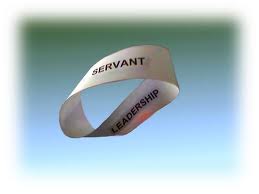I remember attending my daughter’s annual drama performance, which was very unique in the sense all the students of the school from the first standard to the tenth standard were performing, and they had spent months practicing for it. It was at a mammoth level with 1000 students performing in their colorful costumes on a larger-than-life stage with spectacular lighting and heart-soothing music.
The show ended, and the principal came on stage to thank everybody involved in making the event a success. At the end, it was time to thank the director who we knew had put in a lot of sweat and tears to coordinate with 1000 participants and present a soul-stirring performance. When the principal called out his name Allan, all the students and parents cheered in anticipation to see him on stage; but he was nowhere in sight. He knew the job was well done, and he did not want to bask in the glory of the evening and take away anything from the children who had so beautifully performed. It has been five years since the drama was performed, and the memory of this event still holds on to my mind of a person who took the position of insignificance while doing such a great act.
Recently, when India lifted the coveted cricket world cup trophy, the captain of the team, M S Dhoni, allowed his team members to take center stage while he stood on the sidelines, even though he played a crucial knock in the finals and hit the final six over midoff to seal India’s victory in the world cup finals.
In both the instances, the two people took a humble position and there are people in the business community who term this as ‘humble leadership’. Jim Collins, the author of two much-quoted works, How the Mighty Fall (2009) and Good to Great (2001), has linked the performance of great companies to Level 5 leaders, who practice two distinct qualities, namely genuine personal humility and intense professional will.
The Level 5 leader is always looking outside the window to see who deserves the credit for the job well done. This kind of humble leadership attracts people and brings out the best in them as their contribution is recognized as meaningful and significant.
It is not easy to practice humility as pointed by social commentator Santosh Desai, who believes that such acts require supreme self-confidence and wisdom.
Radhanath Swami after studying the wisdom literature of the world says, “A true leader practices humility, and humility really means honesty. Humility is about simply being truthful. What do we have to brag about? If God does not make the sun rise, what will you do? Did you create your brain? Did you create your eyes to see? Did you create your heart to beat? Did you create your arms to act? As they say in British parlance, do not be proud of borrowed plumes. Whatever we have is not ours. We are merely instruments of a power beyond ourselves and to recognize and access that supreme power is real humility.”
 Imagine. The power of the Lord with you! It is like adding a one to all the zeroes. All of a sudden, the value changes. Our Vedic scriptures prescribe a simple method of adding this one to our life by establishing a relationship with the Supreme One. Any relationship requires good understanding and communication. Prayer is a powerful means of communication with the Supreme Lord, and the most effective prayer in the present day and age is the chanting of the holy names of the Supreme Lord. The chanting of the holy names will cleanse our heart of all the impurities and will bring us to our natural state of being a humble servant. This will inspire people around us to become humble leaders leading to a more cooperative and loving society.
Imagine. The power of the Lord with you! It is like adding a one to all the zeroes. All of a sudden, the value changes. Our Vedic scriptures prescribe a simple method of adding this one to our life by establishing a relationship with the Supreme One. Any relationship requires good understanding and communication. Prayer is a powerful means of communication with the Supreme Lord, and the most effective prayer in the present day and age is the chanting of the holy names of the Supreme Lord. The chanting of the holy names will cleanse our heart of all the impurities and will bring us to our natural state of being a humble servant. This will inspire people around us to become humble leaders leading to a more cooperative and loving society.
 Closer in time, among the rags-to-riches stories of today, I scour for the ones that pass the integrity test—and I pick the story of Mr. Rajeev Srivatsava. Continue reading “Leadership and Character”
Closer in time, among the rags-to-riches stories of today, I scour for the ones that pass the integrity test—and I pick the story of Mr. Rajeev Srivatsava. Continue reading “Leadership and Character”





